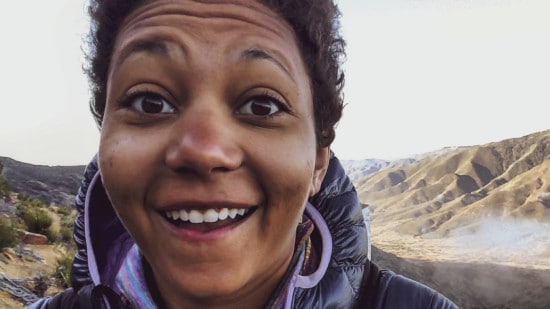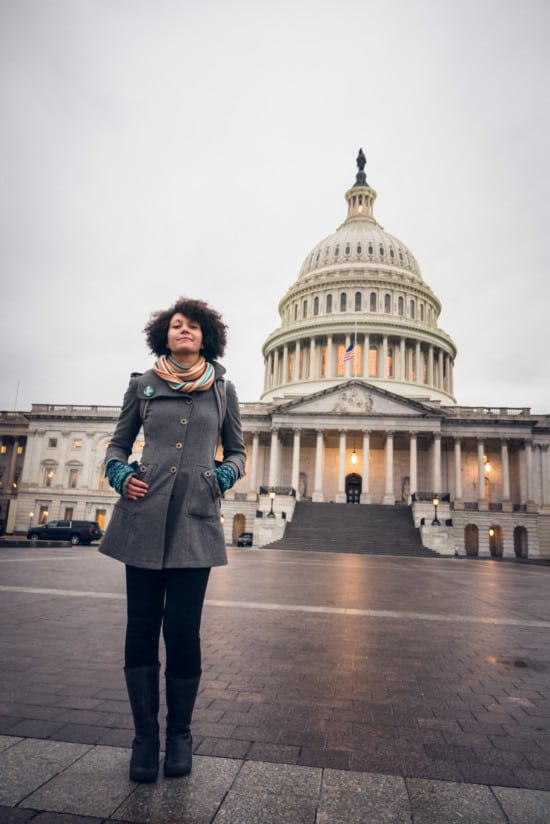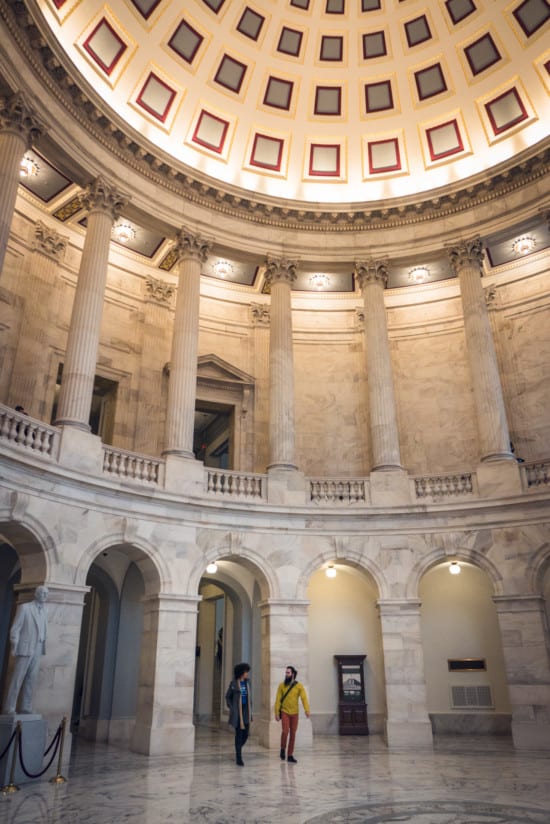Reality Check: National Public Lands Advocacy
By, Amanda “Zuul” Jameson, NextGen Trail Leader
In addition to thinking of myself as a long-distance backpacker, I like to think of myself as a politically aware, if not politically active, person. But given the contentious political climate, it feels more important than ever to be involved, to have our voices heard, even if we’re unsure it will make a difference. We NextGen Trail Leaders recently returned from Hike the Hill®, where we advocated before members of Congress for support of public lands, learned from and networked with other trail and public lands organizations, and heard from partners in federal agencies like the Bureau of Land Management and the Forest Service.

Even though we were only in D.C. for three days, I learned a lot - some of it heartening, some of it enlightening, some of it disappointing. These are my primary takeaways:
- Don’t believe what you see on TV. Sure, politicians talk trash about each other for the cameras, but behind the scenes, they - or, at the very least, their staff - seem to be relatively friendly with each other. Despite disagreements that run deep and often cause harm in the lives of folks in the US, politicians have to work together to get things done. Such was the case with S.47, the sweeping, nearly-700-page lands bill that’s currently waiting for the president’s signature - and that passed both the House and the Senate with less than 15% opposition.
- Those working relationships are what politics is ultimately all about. When I walked into an office, whether I agreed or disagreed with the policies a particular member of Congress had championed, I was treated with respect. This was sometimes endearing, sometimes infuriating - and I wondered at my disparate reactions. The lack of power that any one constituent has to influence their representatives is indeed infuriating, but organizing - not only under the auspices of an organization like AHS, but among cooperating organizations as well - does seem to make a positive difference.
- All of the federal decisions made about public lands are ultimately about stolen land - and being made on stolen land. When making decisions about the future, there’s a temptation to forget the past - or, surrounded by all that political history, to at least forget the past that’s inconvenient. While we spent our time asking for certain lands to be protected and trails to be funded, we did so on the homeland of the Pamunkey and Piscataway peoples, about the homelands of many other indigenous peoples. As a country, we need to acknowledge our whole past. Reckoning with it is the only way to find ways to move forward together.
I learned a lot about federal politics in just a few short days, and while I’m still trying to figure out what it means to me, I think that it’s important to keep perspective. That said, I’m not going to stop dreaming - about ways to improve trails and my community today, and about ways to lobby for change in the future.


